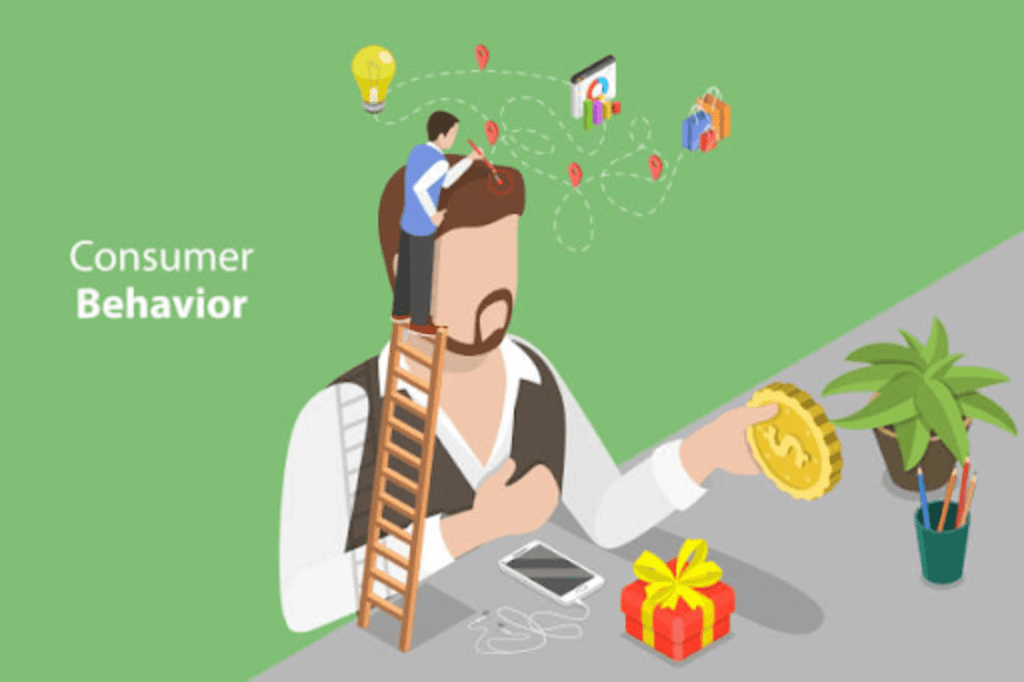
In the digital age, where attention spans are fleeting and choices abundant, understanding the psychology of consumer behavior is paramount for successful online marketing. Beyond catchy slogans and eye-catching visuals, delving into the intricacies of how and why people make purchasing decisions can be a game-changer. In this blog post, we’ll unravel the psychological underpinnings of online marketing and explore how tapping into consumer psychology can elevate your digital strategy to new heights.
The Power of First Impressions
In the virtual realm, first impressions happen in a matter of seconds. The design, layout, and overall aesthetics of your website or social media page can significantly impact how users perceive your brand. According to psychological studies, users form opinions about a website’s credibility within the first 50 milliseconds of viewing it. Ensure that your online presence is visually appealing, intuitive, and aligns with your brand identity to establish trust from the moment a user lands on your platform.
The Influence of Color Psychology
Colors evoke emotions and play a pivotal role in shaping consumer perceptions. Understanding color psychology can be a potent tool in online marketing. For example, the color blue is often associated with trust and reliability, making it a popular choice for financial institutions. In contrast, red can evoke a sense of urgency and passion, often utilized in clearance sales or limited-time offers. Tailor your color palette to evoke the emotions and responses you want to elicit from your target audience.
Cognitive Load and Simplicity in Design
Consumers are inundated with information daily, leading to what psychologists call cognitive load—the mental effort required to process information. Online marketers can combat cognitive load by simplifying design elements, streamlining navigation, and presenting information in digestible chunks. Clear, concise communication with strategically placed visuals not only reduces cognitive load but also enhances user engagement.
The Scarcity Principle and Urgency
The scarcity principle, rooted in psychological studies, suggests that people are more motivated to take action when they believe an opportunity is scarce or time-limited. Incorporate elements of scarcity and urgency in your online marketing strategy by highlighting limited stock, exclusive deals, or flash sales. This taps into the fear of missing out (FOMO) and can drive quicker decision-making among consumers.
The Authority Bias and Influencer Marketing
The authority bias is a psychological phenomenon where individuals tend to attribute greater accuracy to the opinion of an authority figure. In the realm of online marketing, influencers often assume the role of authority figures. Leveraging influencer marketing can capitalize on the authority bias, as consumers are more likely to trust and be influenced by individuals they perceive as knowledgeable or credible in a particular niche.
Social Proof and the Wisdom of Crowds
Consumers are more likely to trust a product or service endorsed by their peers. This principle, known as social proof, underscores the importance of showcasing positive reviews, testimonials, and user-generated content. Whether through customer testimonials on your website or leveraging social media to highlight user experiences, incorporating social proof into your online marketing strategy builds trust and credibility.
The Power of Storytelling
Humans are inherently drawn to stories. Effective storytelling in online marketing can create emotional connections, making your brand more memorable and relatable. Craft narratives that resonate with your target audience, emphasizing not just the features of your product or service but the value it brings to their lives. Whether through blog posts, videos, or social media updates, storytelling humanizes your brand and fosters a deeper connection with consumers.
Behavioral Economics and Pricing Strategies
Behavioral economics explores how psychological factors influence economic decisions. When applied to online marketing, it can inform pricing strategies. For instance, the decoy effect suggests that presenting consumers with a slightly less attractive option can influence them to choose the more expensive but more appealing alternative. Experimenting with pricing structures and understanding the psychology behind consumer decision-making can optimize your pricing strategy for maximum conversion.
Emotional Targeting and Personalization
Emotional targeting involves tailoring marketing messages to evoke specific emotions in the audience. By understanding the emotional triggers that resonate with your target demographic, you can create personalized and impactful marketing campaigns. Utilize data analytics to segment your audience based on preferences, behaviors, and demographics, allowing you to deliver targeted messages that strike an emotional chord.
The Zeigarnik Effect and Unfinished Tasks
The Zeigarnik Effect posits that people remember uncompleted or interrupted tasks better than completed ones. In the context of online marketing, this principle can be applied to create a sense of curiosity and anticipation. Consider teasing upcoming product launches, services, or events to generate interest and keep your audience engaged.
In the dynamic landscape of online marketing, understanding the psychology behind consumer behavior is a linchpin for success. From the moment a user lands on your website to the final click of the checkout button, psychological principles influence every step of the customer journey. By incorporating insights from color psychology, cognitive load considerations, the scarcity principle, and more, online marketers can craft strategies that resonate with their target audience on a deeper level.
As technology continues to evolve, so too will the nuances of consumer psychology in the digital realm. The key is to remain agile, continuously analyze data, and adapt strategies to align with shifting consumer behaviors. By merging the art of storytelling with the science of psychology, online marketers can create not just transactions but lasting connections that foster brand loyalty in an ever-evolving digital landscape.



